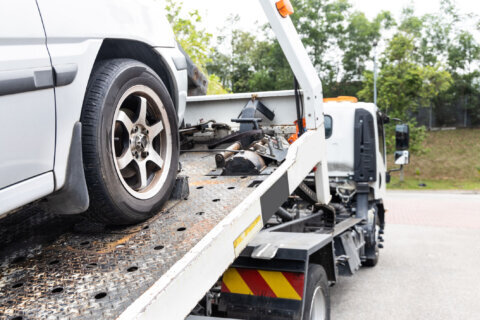This video is no longer available.
The sun was still rising one morning when a big, white traffic enforcement van with license plate readers on top and a computer on the dash left a D.C. Department of Public Works yard in Northeast and started driving. Within a few minutes, not far from Union Station, a computer started buzzing, letting the boot team inside know it had found a vehicle with lots of unpaid tickets.
The boot crew have a system, and they move fast. With boots already roughly half assembled inside, the driver pulls up tight to the vehicle they’re booting. The front door swings open, while the driver gets out and stands guard in the rear, filling out the paperwork.
Pointing to the front passenger door, a DPW booter explained, “I keep this door open for protection so nobody can walk up on me.”
People tend to get upset if a boot is going on their car, and a confrontation isn’t out of the question if the vehicle’s owner sees it happening.
“As you see when my partner pulled up, he’ll pull up [with the] passenger door adjacent to the front of the car so that way when I open the door, it blocks anybody from walking up on me. He’s on my back,” he explained pointing to his partner.
The two are in constant communication during those few moments of action.
Technically, any vehicle with two or more unpaid tickets that are at least 60-days old are eligible for a boot. In this case, an out-of-state vehicle had over a $1,000 of tickets attached to it.
Five minutes later, another out-of-state car was getting booted for having about $600 in unpaid tickets, and not long after that, a car with D.C. tags had nearly $1,400 in fines. All were parked on city streets, and the fines could have stemmed from an accumulation of parking tickets to speed cameras or other automated traffic enforcement tickets.
The boot crews don’t know how or why those cars racked up the fines. They just know they need to be booted.
When the boot is locked on, a sheet of paper is put on the windshield warning the driver that it’s no longer safe to drive the vehicle.
Since the beginning of April, a pilot program launched by DPW has led to about 800 vehicles parked around the city getting booted. Dozens more have been towed to one of the city’s two impound lots, which are so full that a third one is about to open.
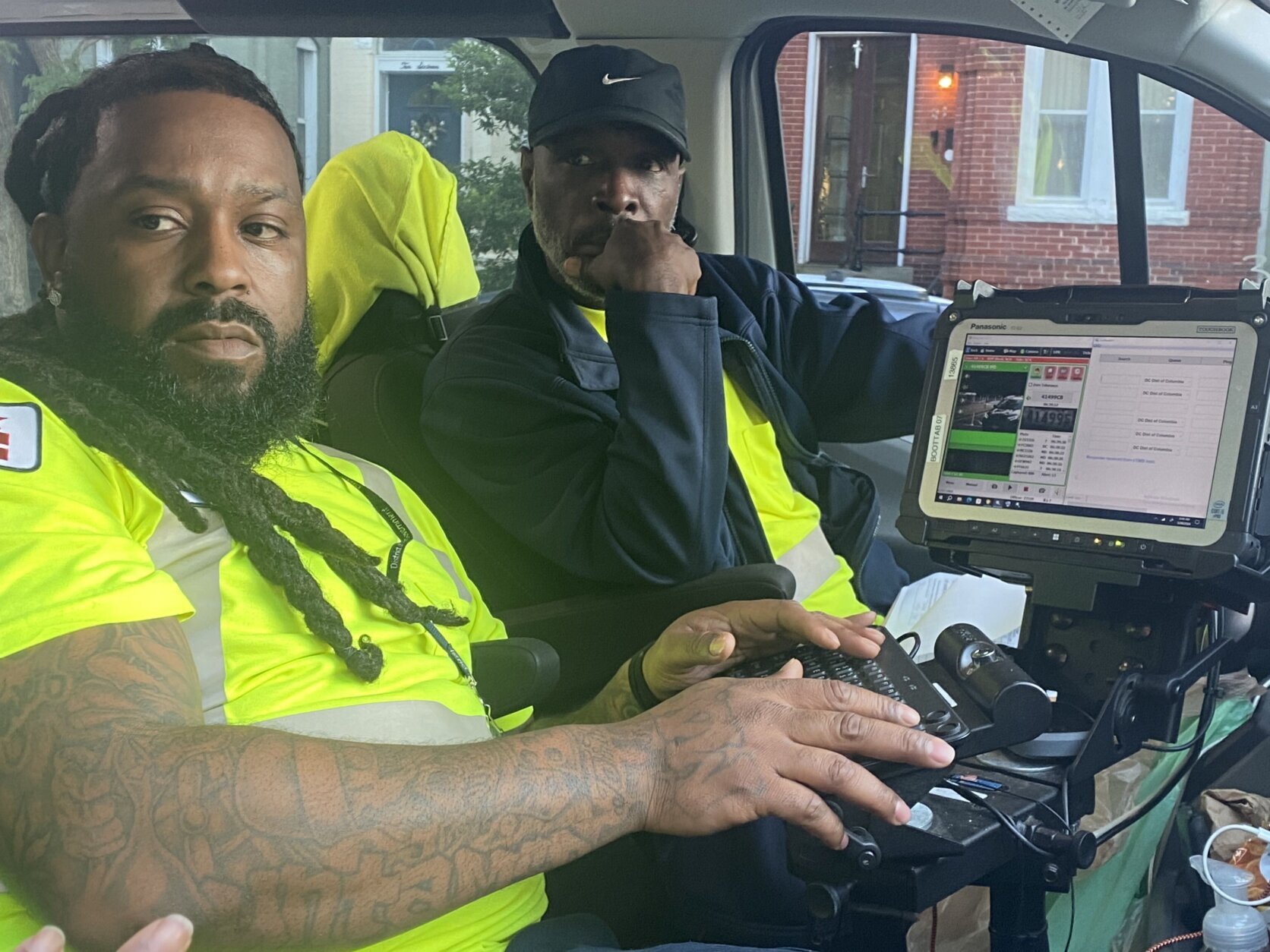
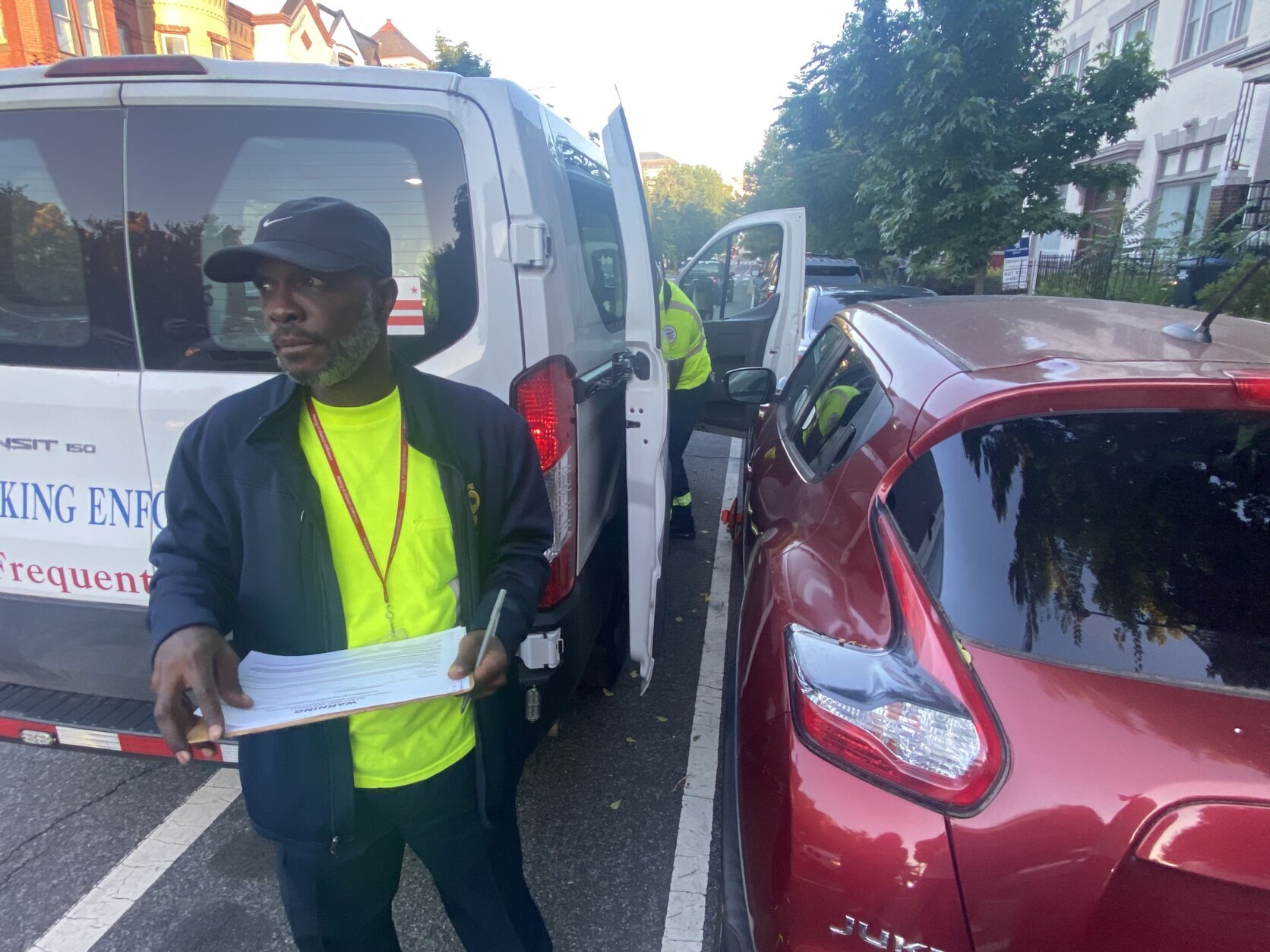
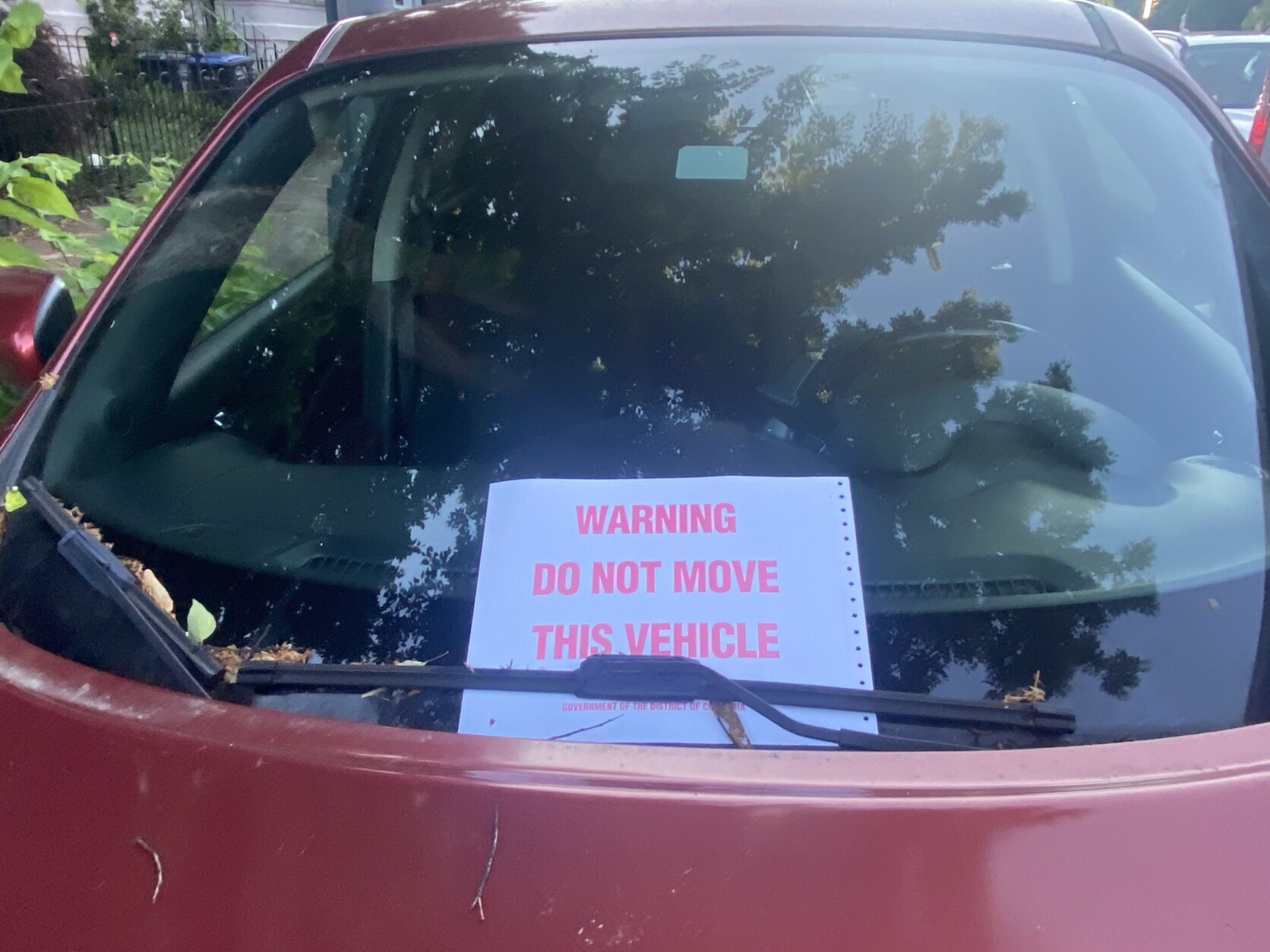
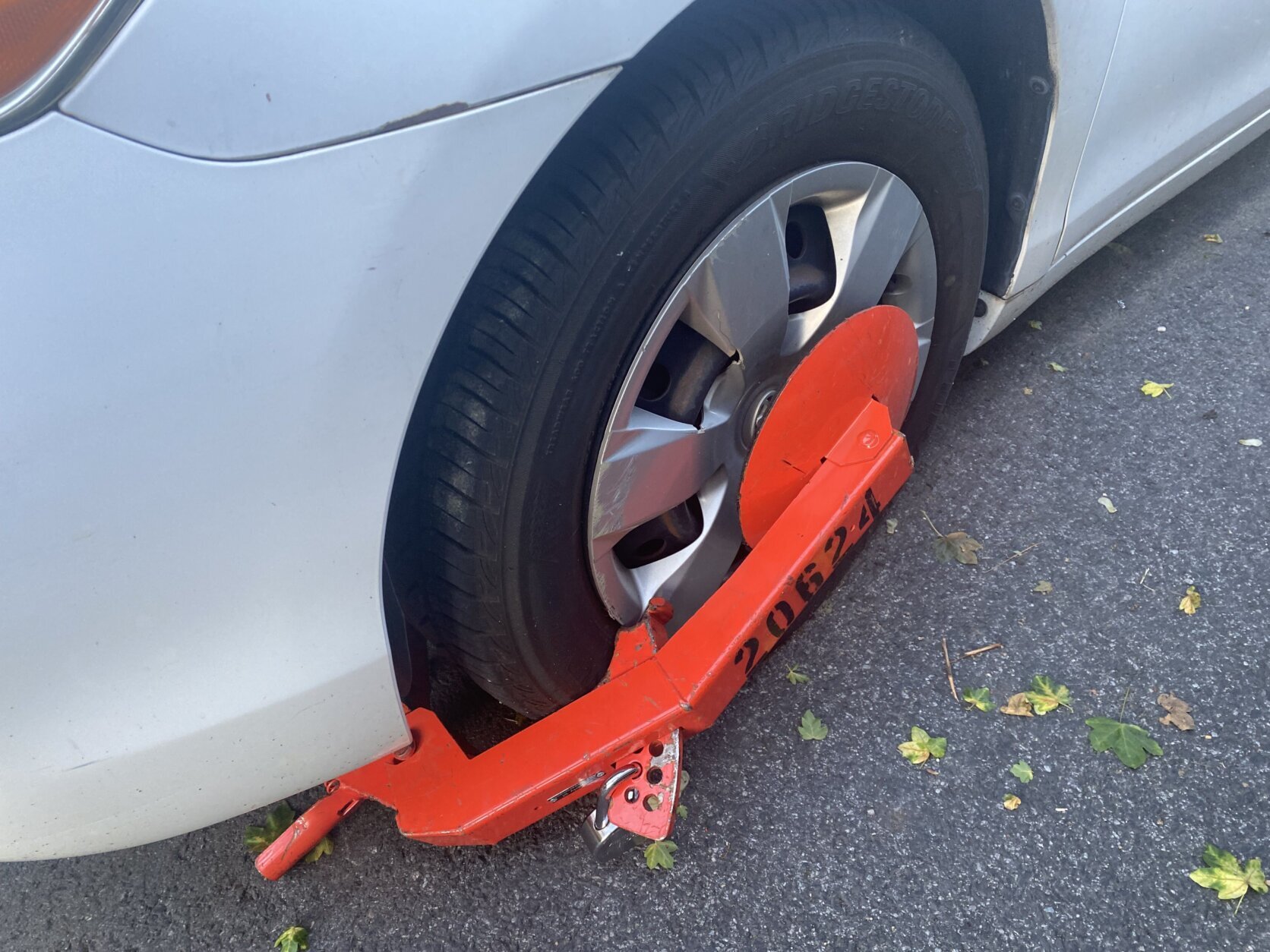
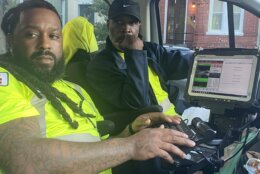
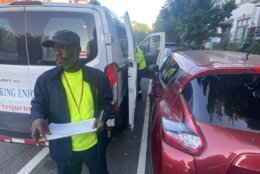
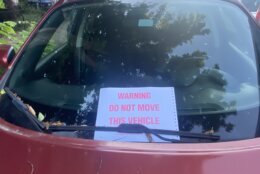
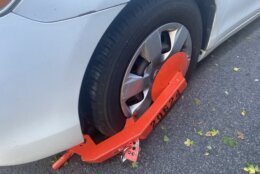
Combined, the fines attached to all of those vehicles surpass the $2 million mark. An enforcement blitz on Ward 2 alone saw nearly four dozen vehicles booted, with the total amount of outstanding fines adding up to $92,000. The increased intensity being put on booting or towing these vehicles is related to the District’s Vision Zero program, which aims to make streets safer for other drivers and pedestrians.
“One of the things that we realize is that a lot of these vehicles are vehicles that affect traffic safety,” said Johnny Gaither, the administrator for parking enforcement with DPW. “These are the vehicles that are running the stop signs. These are vehicles that are speeding through our neighborhoods. And we want to be able to say to our public, ‘Hey look, we’re getting these vehicles off of our city streets.'”
These enforcement operations will soon be heading to all parts of the city.
“We’re looking and checking that data to see where do we need to expand out this pilot to another part of the city,” said Gaither. “So we’re constantly looking at the data and looking to see if there are areas of the city where these scofflaw vehicles are clustering, and then that’s when we are looking at those locations as an expansion.”
There are millions of dollars in delinquent, unpaid fines attached to thousands of vehicles. Gaither’s crews are tasked with shrinking that number.
“We want them to know that the city is looking to find them,” he said.
Get breaking news and daily headlines delivered to your email inbox by signing up here.
© 2024 WTOP. All Rights Reserved. This website is not intended for users located within the European Economic Area.


